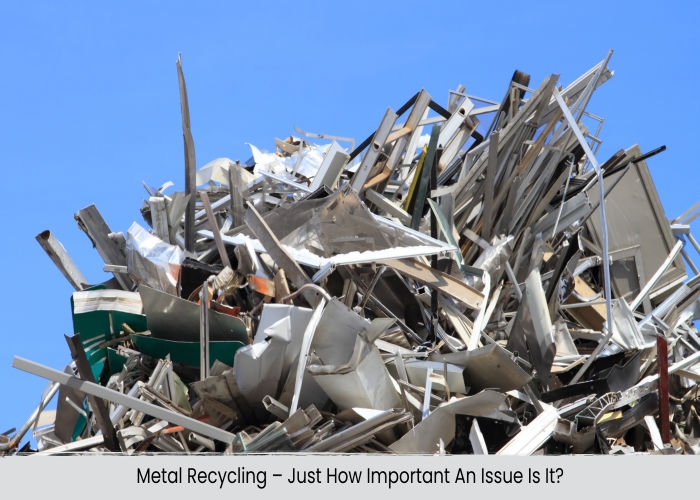Metal Recycling – Just How Important An Issue Is It?

The metal scrap business in India is a thriving industry that plays a significant role in the country's economic and environmental well-being. With a rapidly growing population and booming infrastructure development, India's demand for metals is constantly increasing. However, mining virgin metals can be a highly resource-intensive and environmentally destructive process. Metal recycling offers a sustainable alternative, helping to conserve natural resources, reduce pollution, and create a more circular economy.
The Environmental Benefits of Metal Recycling
Metal recycling offers a multitude of environmental benefits compared to virgin metal extraction. According to the World Steel Association, recycling one ton of steel saves up to 2,500 kg of iron ore, 1,400 kg of coal, and 500 kg of limestone. This translates to significant reductions in energy consumption, greenhouse gas emissions, water usage, and air and water pollution.
Famous Metal Recycling Quote
"Recycling is the best thing we can do for the environment next to conserving energy." - John Dingell, former U.S. Representative for Michigan
Here's a more detailed look at the environmental advantages of metal recycling:
Energy Conservation: Recycling metal requires significantly less energy than extracting and processing virgin ores. For instance, recycling aluminum uses only about 5% of the energy required to produce aluminum from scratch. This substantial reduction in energy consumption translates to lower greenhouse gas emissions from power plants.
Reduced Greenhouse Gas Emissions: Extracting and processing virgin metals is a significant source of greenhouse gas emissions, including carbon dioxide, sulfur dioxide, and nitrogen oxides. Recycling metals significantly reduces these emissions, helping to mitigate climate change.
Water Conservation: Metal mining and processing require vast quantities of water. Recycling metals significantly reduces water usage, conserving this precious resource for other purposes.
Preservation of Natural Resources: Recycling metals helps to conserve finite natural resources such as iron ore, bauxite, and copper. This reduces the need for environmentally destructive mining practices and protects ecosystems.
Reduced Landfill Waste: Discarded metal products can take up a significant amount of space in landfills and may leach harmful contaminants into the soil and water. Metal recycling diverts scrap metal from landfills, reducing the environmental impact of landfills.
Economic Benefits of Metal Recycling
In addition to its environmental benefits, metal recycling also offers a range of economic advantages for India:
Job Creation: The metal scrap business in India is a significant job creator. It employs people in various sectors, including metal collection, processing, transportation, and manufacturing. A well-functioning metal recycling industry can contribute to economic growth and development.
Reduced Reliance on Imports: India imports a significant amount of metal scrap to meet its industrial needs. A robust domestic metal recycling industry can help reduce reliance on imports, saving foreign exchange and strengthening the country's economic self-sufficiency.
Boost to Manufacturing: Recycled metals can be used to produce a wide variety of new products. A thriving metal recycling industry can provide a reliable source of raw materials for domestic manufacturing, promoting industrial growth and innovation.
Cost-Effectiveness: Recycled metals are generally cheaper than virgin metals. This can help to reduce production costs for manufacturers and make Indian products more competitive in the global market.
Challenges and Opportunities in Metal Recycling in India
Despite its significant benefits, the metal scrap business in India faces several challenges. These include:
Informal Sector: A large portion of the metal scrap collection and processing industry operates in the informal sector. This can lead to inefficiencies, environmental hazards, and unfair labor practices.
Lack of Infrastructure: India lacks adequate infrastructure for efficient metal scrap collection, processing, and transportation. This can hinder the growth of the industry and limit the quality of recycled metals.
Policy and Regulation: The regulatory framework for metal recycling in India needs to be strengthened to ensure environmental sustainability and ethical labor practices.
- Industry
- Art
- Causes
- Crafts
- Dance
- Drinks
- Film
- Fitness
- Food
- Juegos
- Gardening
- Health
- Home
- Literature
- Music
- Networking
- Other
- Party
- Religion
- Shopping
- Sports
- Theater
- Wellness
- News


